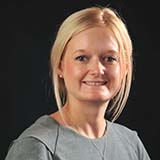 A report on remuneration by The Doctors’ and Dentists’ review body (DDRB) discussed the changing needs of the younger workforce, often referred to as “Generation Y.” These are trainees and junior consultants aged between about 23-37 years. The DDRB discusses some of the supposed characteristics of “Generation Y” which are taken from a PricewaterhouseCoopers report. The report says that younger trainees have:
A report on remuneration by The Doctors’ and Dentists’ review body (DDRB) discussed the changing needs of the younger workforce, often referred to as “Generation Y.” These are trainees and junior consultants aged between about 23-37 years. The DDRB discusses some of the supposed characteristics of “Generation Y” which are taken from a PricewaterhouseCoopers report. The report says that younger trainees have:
- “Expectation of instant access to information
- An emphasis on personal needs as opposed to the broader organisation’s needs
- An expectation of rapid progression and career variety
- A higher rate of churn and reduction in corporate loyalty
- The appetite for international experience
- The need for work-life balance, flexibility and the desire to feel valued at work ”
As a member of “Generation Y” myself, I believe that most of these are an accurate reflection of many of the things that I value in a career. This is the same for my non-medical and medical peers alike, and these points were reflected in Health Education England’s listening exercise earlier this year. Although this list may be seen as demanding, “Generation Y” do bring advantages, for example, a grasp of the latest technology that promises to drive change in the NHS, a desire for lifelong learning and improvement, and placing development and work-life balance ahead of financial reward which brings economic advantages. In light of dwindling interest from foundation doctors in pursuing training in the NHS, what does medical training look like at present, and how can it be improved?
The current training structure is set up as an escalator to the top. Trainees make an early decision about the career that they are interested in. They work hard, they jump on that escalator, make all attempts not to fall off, and stay there until they jump off the other end as a consultant. If they decide that their goal has changed and they jump off, they slide all the way back down to the bottom again. Junior doctors also report feeling undervalued in the wider working environment in the NHS. Any reason to remain as an employee in the NHS relies on corporate loyalty in the face of this. This inflexible pathway and the treatment afforded to the workforce is the opposite of the requirements of “Generation Y.”
So if “Generation Y” were to design the training scheme, what would it look like? To me, the desire for increased flexibility could be met by a series of “hop on, hop off” escalators where trainees can get on and stay on an escalator to the top or, if they choose to, leave an escalator at one point, and get back on a few months or years later. Trainees should be able to change to a different escalator and rejoin at an appropriate point depending on their skills. And there should be the freedom for trainees to choose a slower, less than full time escalator for any reason they desire, or even a faster one where appropriate. Driving a feeling of value and worth into the work of a “Generation Y” is, in my opinion, easy with a few small changes; consultants and other more stable staff learning the names of their trainees, rewarding trainees for good work, taking time to train them, and asking them their opinion.
The medical profession risks losing many valued trainees if we rely on “Generation Y” to change themselves to fit into the current training structure. It is time to change training schemes to ensure we retain a highly educated cohort who are highly employable outside the medical field. HEE’s pledge to increase the flexibility of training is hopefully a step in the right direction. The RCS’s Improving Surgical Training project promises to address some of the needs of a “Generation Y” trainee; ensuring they feel valued, emphasising their personal needs to train, and even improving their work-life balance. However, there is still some way to go to ensure that the above is realised. We need to embrace a culture in the NHS that recognises the value that trainees add and encourages and incorporates international experience. Given concerns about workforce retention and shortfalls in many specialities, alternative approaches to training, tailored to the needs of “Generation Y”, must be considered.
Victoria Twigg is a core surgical trainee from the East Midlands adding some “career variety” by completing a year out of programme as a National Medical Director’s Clinical Fellow at the Royal College of Surgeons of England before returning to continue her surgical training.
Competing interests: Salary funded by the Royal College of Surgeons (Eng). Article approved by the college, but not commissioned and reflects my own views.
See also: Postgraduate training will be more flexible under new standards, says GMC
